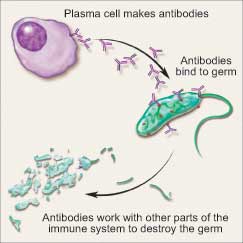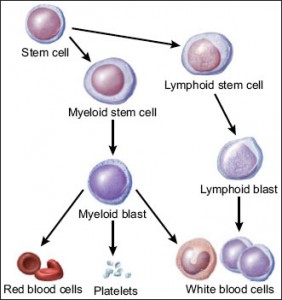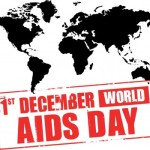Jaws Actor Roy Scheider Died of Multiple Myeloma-Correction

Correction:
Celebrity Diagnosis would like to thank our readers who rightfully pointed out an error in our story. Roy Scheider died in 2008 after a battle his battle with multiple myeloma. A link about Mr. Scheider’s death was embedded in a story about the death of another film legend James Farrentino who died this week, and implied that Mr. Scheider had just died as well.
However, Mr. Scheider’s story of multiple myeloma is still an important one, as it puts a familiar face on an illness that will be diagnosed in over 20,000 people a year.
The story has also brought comments from readers that gave us a valuable resource for those with multiple myeloma: The Myeloma Beacon at: http://www.myelomabeacon.com/
We apologize for any confusion this error may have caused.
“You’re gonna need a bigger boat!”
-Police Chief Martin Brody, Jaws, 1975
It is by these immortal words that actor Roy Scheider seems to be best known. The 75 year old Jaws star died from complication of multiple myeloma.
Scheider’s acting career spanned almost 50 years, and included two Academy Award nominations. The first, for Best Supporting Actor, was for playing a fictionalized version of New York City detective Sonny Grosso in the 1971 classic The French Connection. His second Academy Award nomination, this time as Best Actor, occurred in eight years later for All That Jazz, in which he played a version of the film’s director and co-writer Bob Fosse.
In 2004, Scheider was diagnosed with multiple myeloma. In June 2005, he underwent a bone marrow transplant to treat the cancer.
Scheider had been receiving treatment for the past two years at the University of Arkansas’s Myeloma Institute for Research and Therapy in Little Rock Arkansas. His wife, Brenda Seimer, told the New York Times the cause of death was complications from a staph infection.
What is Multiple Myeloma?
 Multiple Myeloma is a cancer that develops from plasma cells, a type of white blood cell in the bone marrow that make antibodies. Antibodies are part of the immune system which help protect the body from germs and other harmful substances.Each type of plasma cell makes a different antibody.
Multiple Myeloma is a cancer that develops from plasma cells, a type of white blood cell in the bone marrow that make antibodies. Antibodies are part of the immune system which help protect the body from germs and other harmful substances.Each type of plasma cell makes a different antibody.
When a plasma cell becomes cancerous, it divides into more cells in an uncontrolled manner. These abnormal plasma cells (myeloma cells) build up in the bone marrow, forming tumors in many bones of the body.
Myeloma cells make antibodies called M proteins and other proteins. These proteins can collect in the blood, urine, and in organs and can cause damage to those organs.
These tumors also prevent the bone marrow from making enough healthy blood cells. Normally, the bone marrow produces stem cells (immature cells) that develop into three types of mature blood cells:
 1. Red blood cells that carry oxygen and other materials to all tissues of the body.
1. Red blood cells that carry oxygen and other materials to all tissues of the body.
2. White blood cells that fight infection and disease.
3. Platelets that help prevent bleeding by causing blood clots to form.
As the number of myeloma cells increases, fewer red blood cells, white blood cells, and platelets are made. The myeloma cells also damage and weaken the hard parts of the bones.
What symptoms does multiple myeloma cause?
Sometimes multiple myeloma does not cause any symptoms. The most common symptoms include:
- Bone pain, often in the back or ribs.
- Bones that break easily.
- Fever for no known reason or frequent infections.
- Easy bruising or bleeding.
- Trouble breathing.
- Weakness of the arms or legs.
- Feeling very tired.
Sometimes tumors can damage the bone and cause hypercalcemia (a condition in which there is too much calcium in the blood). This can affect many organs in the body, including the kidneys, nerves, heart, muscles, and digestive tract, and cause serious health problems.
Hypercalcemia may cause the following symptoms:
- Loss of appetite
- Nausea or vomiting
- Feeling thirsty
- Frequent urination
- Constipation
- Feeling very tired
- Muscle weakness
- Restlessness
- Mental confusion or trouble thinking
How is multiple myeloma treated?
Patients with early myeloma can do well for years without treatment and starting treatment early does not seem to help them live longer. These patients are often watched closely without starting chemo. Sometimes they will be given a medication called bisphosphonate to help protect their bones.
In those patients with more advanced stages of myeloma, a variety of treatment options exist, and may be used in combination. These include:
- Chemotherapy
- Targeted therapy
- High-dose chemotherapy with stem cell transplant
- Biologic therapy
- Radiation therapy
- Surgery
- Plasmapheresis(filtering of the blood to remove excess antibodies)
For more information about multiple myeloma, click here to go to the Resounding Health Casebook on the topic.
What is your favorite Roy Scheider film?

























12 Comments